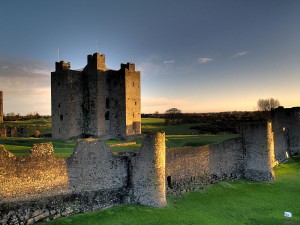 DUBLIN, Ireland — Residents in the predominantly Roman Catholic Republic of Ireland voted to legalize same-sex “marriage” on Friday, becoming the first country in the world to do so by popular vote.
DUBLIN, Ireland — Residents in the predominantly Roman Catholic Republic of Ireland voted to legalize same-sex “marriage” on Friday, becoming the first country in the world to do so by popular vote.
According to reports, 1,201,607 voted in favor of changing the country’s constitution, while 734,300 voted against the measure—equating to a 61 percent passage. Only one constituency—Roscommon-South Leitrim—voted against the proposition.
“‘Marriage may be contracted in accordance with law by two persons without distinction as to their sex,” it read.
An estimated 60 percent of the population turned out for the vote.
The Washington Post reports that after the results were announced, thousands flooded into the nation’s pubs and clubs—especially in the capital of Dublin—with some dressing in drag queen attire and dancing to the music of Queen, who is stated to be behind the push for the change.
Singer Bono, who professes to be a Christian, announced that he was dedicating his song “Pride (In The Name Of Love)” to the Irish movement.
“If God loves us, whoever we love, wherever we come from, then why can’t the state?” he told concert-goers during his concert in Phoenix, Arizona.
A number of the nation’s leaders had supported the referendum as well.
“With today’s vote, we have disclosed who we are: a generous, compassionate, bold and joyful people,” Prime Minister Enda Kenny told reporters.
Homosexual behavior had been a crime in Ireland up until the 1990s.
As Ireland is over 70 percent Roman Catholic, religious leaders pondered what the vote might mean in regard to the mindsets of those who identify as Catholic.
Diarmuid Martin, the archbishop of Dublin, told reporters that while he opposed the referendum, he recognized that many who voted for the constitutional amendment grew up Roman Catholic.
“I ask myself, most of these young people who voted yes are products of our Catholic school system for 12 years,” he stated. “I’m saying there’s a big challenge there to see how we get across the message of the Church.”
But it wasn’t only Catholic youth that were voting in favor of the amendment.
“We are Catholics, and we are taught to believe in compassion and love and fairness and inclusion,” Paddy Whyte, 79, told the New York Times.
Martin said that the vote called for the Roman Catholic institution in Ireland to take a “reality check.”
“We [Roman Catholic leaders] have to stop and have a reality check, not move into denial of the realities,” he stated. “I think it is a social revolution.”
But evangelicals in the country said that their congregations were among those voting against the proposal. Only 1.5 percent of the population in Ireland identifies as evangelical Christian.
“[Our members] already know that it is against the Scriptures to allow for same-sex marriages,” Nigerian-born pastor Adewale Kuyebi from the Christ Apostolic Church in Blanchardstown told the Guardian. “I am confident all of them are for the no side because they read their Bible and understand what it tells them.”
Mike Garba, pastor Mountain of Fire and Miracles Church in North Dublin, made similar comments.
“Our message to our 250-strong congregation is that if you know the rules then you must vote no,” he said. “We tell them that if you read your Bible then you know that it is against Christianity to see the same sexes marrying. It is the same in churches like ours all over the country—100% no to this.”
Kuyebi said that Christians were using an app called “Whatsapp” to help get out the vote.
“This app has touched 30,000 believers already and will reach many more over this week because we do not want a godless law being incorporated into the Irish constitution,” he said earlier this month.
John Waters of the organization First Families First said that many of those who opposed the amendment faced pressure to keep quiet.
“The climate of intimidation and menace has been so acute that people are being scared into silence,” he stated on Newstalk’s Sunday Show. “When someone puts up an argument, they blandly say that you’re scaremongering. … One is not allowed to have a nuanced or subtle view on [gay marriage].”
Nineteen other countries have legalized same-sex “marriage” through the legislature or judicial system.
Photo: Andrew Parnell
Become a Christian News Network Supporter...


